The mission of the university’s academic health center—UF Health—is to promote health through outstanding and high-quality patient care, innovative and rigorous education in the health professions and biomedical sciences, and high-impact research across the spectrum of basic, translational and clinical investigation. Our patients and our communities are at the center of all we do.
As part of the University of Florida's Artificial Intelligence, or AI, initiative, UF Health is creating an academic hub to advance AI in the health sciences grounded in the values of community, trustworthiness, and diversity, equity and inclusion. Together, these values foster team science and a translational vision of moving from big data and black boxes to explainable tools for improved health for all.
The UF Health colleges of Dentistry, Medicine, Nursing, Pharmacy, Public Health and Health Professions, and Veterinary Medicine are hiring an initial 17 faculty positions to join UF’s growing community of researchers and clinicians developing and applying AI methods in health care delivery, biomedical discovery, and public and population health. To learn more about the UF Health AI initiative, we connected with members of the UF Health AI steering committee, which is co-chaired by Chris Harle, PhD, UF Health chief research information officer, and Patrick Tighe, MD, MS, the Donn M. Dennis professor in anesthetic innovation.
How has the emergence of artificial intelligence advanced research at UF Health?
UF Health’s problem-solving culture generates real-world questions and data that spur advances in AI to improve health and health equity at individual, community, health system and population levels. UF Health research teams deploy AI techniques to harness big data and develop decision-support systems and predictive analytics that help patients, clinicians, health systems and payers optimize health care decisions. To optimize diagnostic and therapeutic development, our researchers are leveraging AI in tandem with UF Health’s data resources, imaging facilities, screening capabilities and sequencing technologies. UF Health faculty also are pioneering methods to link clinical, omics, geospatial, environmental and other data for use with AI. Such linkages can help researchers identify pathways for health and disease and develop corresponding interventions to improve health.
How do you see resources at UF Health evolving as you expand AI research and opportunities?
To complement robust research services and resources available through UF’s Clinical and Translational Science Institute, Interdisciplinary Center for Biotechnology Research and domain-focused centers and institutes, UF and UF Health continuously enhance three building blocks that provide a strong foundation for AI in the health sciences:
How do you see curriculum evolving as you expand AI research and opportunities across UF Health colleges?
UF Health colleges have a broad portfolio of graduate education opportunities in disciplines foundational to AI and data science, from biostatistics, epidemiology and health outcomes and biomedical informatics, to pharmaceutical sciences and precision medicine. Several new opportunities are in development to train future AI researchers as well as AI-savvy collaborators. The College of Public Health and Health Professions is creating three new undergraduate courses, a new graduate concentration in data science epidemiology, and a graduate certificate in AI research methodologies in health care and public health. The College of Medicine is piloting and expanding AI training opportunities for medical students, residents and clinicians. In addition, the colleges of Dentistry, Nursing, Public Health and Health Professions and Engineering are developing an AI-enhanced interprofessional education program that uses virtual patient simulation to teach students and residents how to address health care needs while engendering cultural sensitivity and empathy to prevent the unintentional increase of disparities and solve health care disparities.
UF Health colleges are currently hiring faculty with an AI background. How do you envision these faculty will help advance health research through artificial intelligence?
New faculty will join a multi-college network of investigators harnessing AI to benefit science and health in exciting new ways. UF Health is strengthening infrastructure and augmenting expertise to expand AI research, applications and training in health care delivery, biomedical discovery, and public and population health. Our first phase of hiring is targeting expertise that builds on strengths emerging at the intersection of those areas, specifically AI-enhanced health care decision-making and precision health, AI-fueled development of novel diagnostics and therapeutics, and AI-powered modeling and surveillance of biological, social and other health determinants. Faculty hired through the UF Health AI initiative will expand applied expertise as well as cross-cutting methodological and computational expertise to advance trustworthy AI in the health sciences.
How are faculty and staff at UF Health colleges currently using AI?
The UF Health AI community includes researchers developing, evaluating and implementing health-related AI applications, as well as methodological and computational experts developing new AI methods. Here is a sampling of recent projects and emerging interests by college (see related news):

In the College of Dentistry, faculty are using AI to find patterns of gene expression of oral diseases and link imaging, pathology and genomic data to improve patient outcomes. Dentistry researchers are also using machine learning methods to understand the neurobiological contributors of pain in older adults. Learn more.

In the College of Medicine, teams are harnessing AI on many fronts. Clinician-scientists are developing AI-enabled systems to guide perioperative and acute care decision-making, such as pervasive sensing and remote monitoring to diagnose and treat complex conditions in the ICU. Data scientists are working to solve big data problems to spur data-driven medicine, and basic scientists are advancing AI-enhanced methods for analyzing molecular data.

In the College of Nursing, researchers are applying machine learning and natural language processing to advance precision nursing. For example, nursing faculty are leading NIH-funded research that uses nursing informatics and AI-enabled technologies to improve patient outcomes and chronic pain management.

In the College of Pharmacy, researchers are using AI tools to address the nation’s health care challenges, from developing new cancer drugs to stemming the opioid epidemic. AI is transforming the way we approach drug discovery, design clinical trials, personalize treatments and make medications safer. Learn more.

In the College of Public Health and Health Professions, researchers are using AI tools to improve population health and treatment interventions. Research themes include applied AI to tackle real-world health issues, ethical AI to develop fair and equitable models, and interdisciplinary AI to develop new methods. Learn more.

In the College of Veterinary Medicine, experts are exploring the use of machine-learning techniques to improve diagnostic accuracy and prediction, predict the risk of infectious diseases in livestock and aquatic species, and reduce the use of antimicrobials in livestock. Faculty also are collaborating with engineering colleagues to use single cell transcriptomics for oncology research.
What steps are you taking to build a cohort of AI researchers that represents our diverse society and exemplifies inclusive excellence?
Focusing on inclusion, diversity, equity and access (IDEA) is central to our vision for advancing trustworthy AI and creating a true community that is inclusive of and values team members and research participants from diverse backgrounds. The UF Health colleges are implementing a phased, collaborative and inclusive search process for the AI initiative that uses a cluster-hiring approach. The search is led by a steering committee and three thematic search committees comprised of faculty from multiple UF Health colleges. Committees receive guidance from equity advisors and strategic talent experts, and AI faculty candidates must demonstrate a strong commitment to working in a highly collaborative and inclusive environment.
As we continue to grow and develop our AI community, we will cultivate AI research skills and experiences for graduate students, trainees and early-career faculty, and will tailor our outreach strategies to engage underrepresented groups and disciplines. We will also collaborate with groups at UF and beyond working to increase the pipeline of young scientists interested in AI.
Equally important will be a focus on ensuring AI research addresses health inequities in communities served by UF, and avoids biases that can lead to unintended harms. In embracing trustworthiness as a core value, we will prioritize rigorous methodology and data quality to ensure validity and strengthen the reproducibility, interpretability, generalizability and actionability of health-related AI applications.
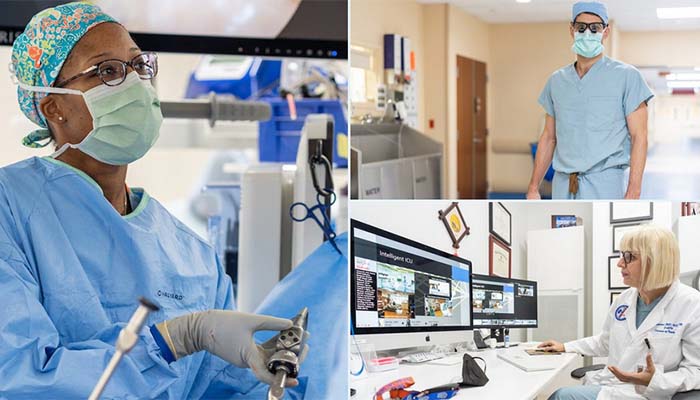
For example, faculty from the College of Pharmacy and the Health Science Center Libraries are members of a workgroup convened by the Herbert Wertheim College of Engineering’s Equitable AI program to create standards and certifications in developing tools and solutions that are cognizant of bias, unethical practice and legal and moral issues. College of Medicine physician-scientists are collaborating with colleagues to address bias and ethical considerations in automating perioperative risk assessment. Researchers from the colleges of Medicine and Public Health and Health Professions are tackling big data hurdles to address inaccuracies and bias in source data.
How does the culture of UF Health foster an environment where new faculty members can excel in AI?
World-class infrastructure, high-quality data and diverse and inclusive teams are central to UF Health’s vision for advancing trustworthy AI in the health sciences. We are committed to helping our colleagues and students succeed by providing multiple pathways for mentorship, training, networking, and project support. UF Health offers a highly collaborative environment for groundbreaking AI initiatives that leverage faculty expertise, UF Health data resources and UF Research Computing infrastructure. For example, a UF-NVIDIA team used UF Health IDR data and HiPerGator AI — ranked by TOP500 as one of the world’s most energy-efficient and powerful supercomputers in higher education — to develop and train GatorTron™, the largest clinical language model to date.
As a land-grant university, UF also has an opportunity to capitalize on the state’s unique geography and context. Centers, institutes and research networks led by UF Health faculty have statewide and national partners who can benefit from AI collaborations, including the McKnight Brain Institute, the Norman Fixel Institute for Neurological Diseases, the Diabetes Institute, the Claude D. Pepper Older Americans Independence Center, the UF Health Cancer Center, the Emerging Pathogens Institute, the 1Florida Alzheimer’s Disease Research Center, and the OneFlorida Clinical Research Consortium.
Our IDEA commitment is amplified within each college:
What opportunities does AI present to UF Health for collaboration across disciplines, colleges or units?
AI-focused faculty will be encouraged to set aside traditional departmental boundaries and work together as an interdisciplinary community to ignite major discoveries. UF Health’s six colleges are proximate to UF’s business and engineering schools as well as the Institute of Food and Agricultural Sciences. We are developing opportunities to catalyze deep scientific interactions, collaborative research proposals, and breakthrough science involving diverse individuals from across UF. For example, UF Health faculty are organizing an interdisciplinary workshop in Fall 2021 focused on tackling bias in data science. Below are some of our institutes, centers, labs and programs working across colleges to advance AI in the health sciences. We invite you to join us!
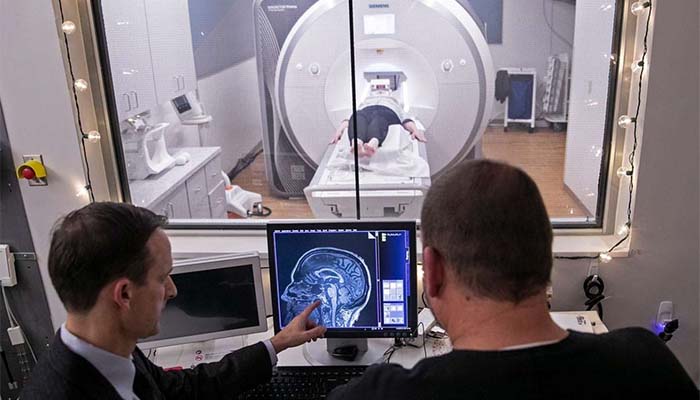
David Vaillancourt, PhD, Core PI and Professor and Chair of Applied Physiology and Kinesiology
Collaborator Colleges: Health and Human Performance, Medicine, Public Health and Health Professions
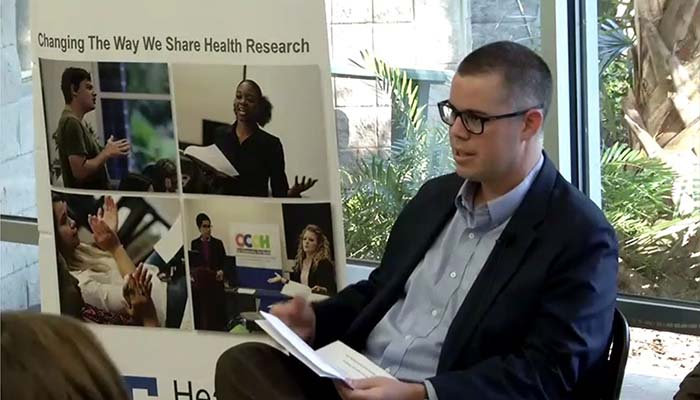
Patrick Tighe, MD, MS, Lab PI, Associate Professor of Anesthesiology, and Donn M. Dennis MD Professorship in Anesthetic Innovation
Collaborator Colleges: Business, Dentistry, Engineering, Medicine, Public Health and Health Professions
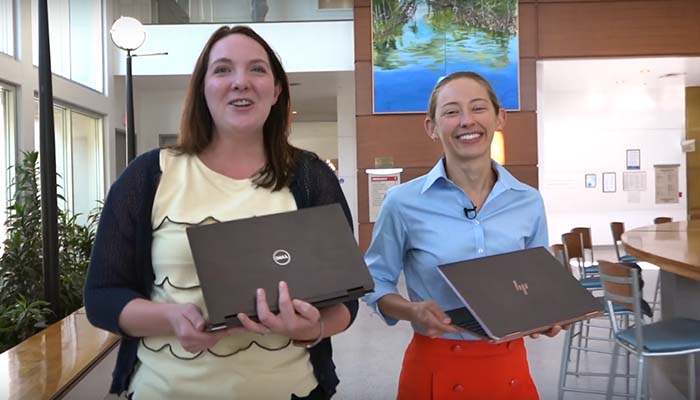
Jennifer Fishe, MD, Center Director and Associate Medical Director of Pediatric Emergency Medicine (Jacksonville)
Collaborator Colleges: Medicine, Public Health and Health Professions
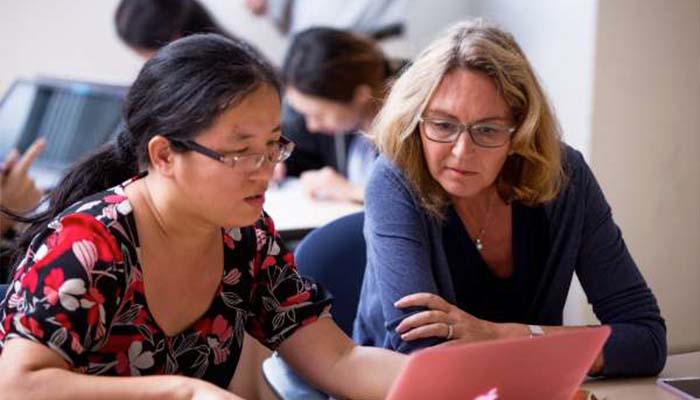
Almut Winterstein, RPh, PhD, FISPE, Center Director and Professor and Chair of Pharmaceutical Outcomes and Policy
Collaborator Colleges: Dentistry, Health and Human Performance, Medicine, Pharmacy, Public Health and Health Professions
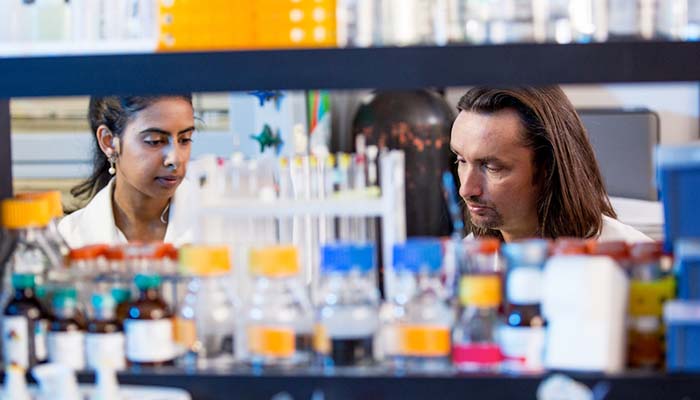
Gustavo Seabra, PhD, Core Leader and Research Associate Professor, Medicinal Chemistry
Collaborator Colleges: Agricultural and Life Sciences, Dentistry, Engineering, Liberal Arts and Sciences, Medicine, Pharmacy
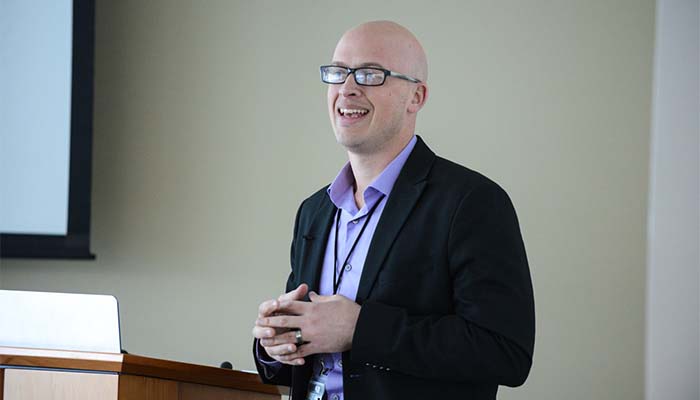
Todd Manini, PhD, Core Director and Professor and Chief of Epidemiology and Data Science in Gerontology
Collaborator Colleges: Dentistry, Engineering, Medicine, Public Health and Health Professions

William Hogan, MD, MS, Director and Professor of Biomedical Informatics and Data Science
Collaborator Colleges: Business, Engineering, Medicine, Nursing, Pharmacy, Public Health and Health Professions
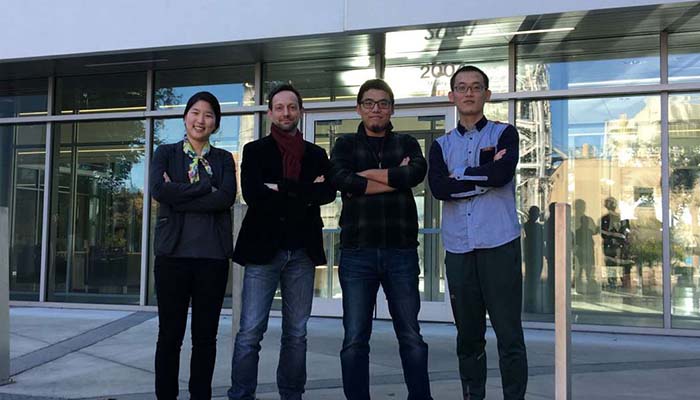
Mattia Prosperi, MEng, PhD, Lab PI and Associate Professor of Epidemiology
Collaborator Colleges: Agricultural and Life Sciences, Engineering, Medicine, Public Health and Health Professions
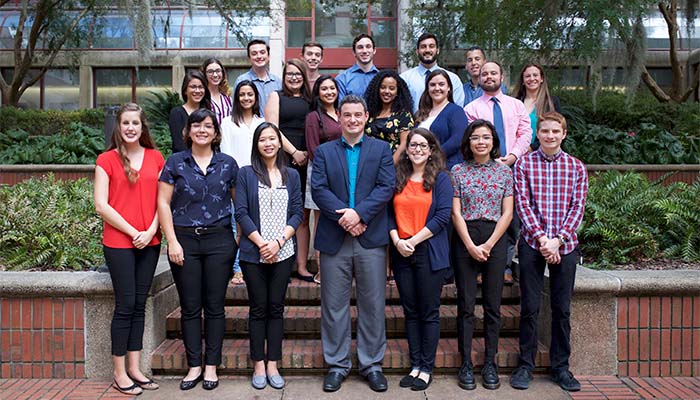
Adam Woods, PhD, Lab PI and Associate Professor of Clinical and Health Psychology
Collaborator Colleges: Dentistry, Engineering, Medicine, Public Health and Health Professions
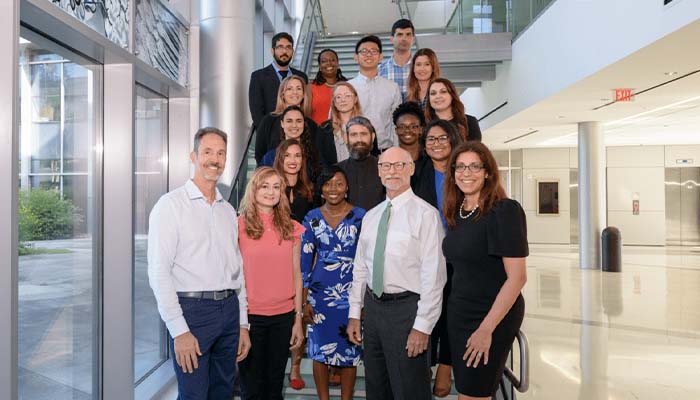
Roger Fillingim, PhD, Center Director and Professor of Community Dentistry and Behavioral Science
Collaborator Colleges: Business, Dentistry, Engineering, Health and Human Performance, Journalism and Communications, Liberal Arts and Sciences, Medicine, Nursing, Pharmacy, Public Health and Health Professions, Veterinary Medicine
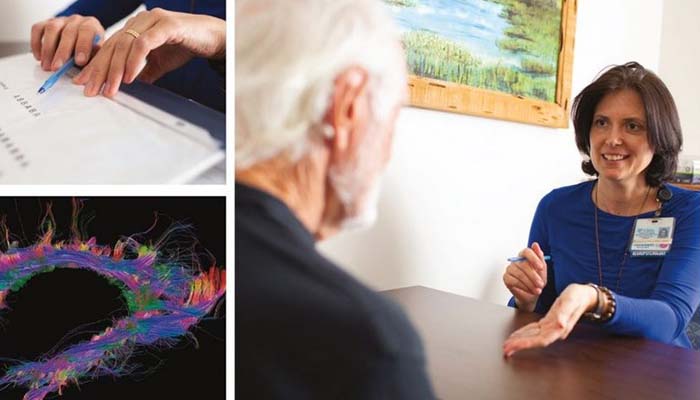
Catherine Price, PhD, ABPP-cn, Lab Director and Associate Professor of Clinical and Health Psychology
Collaborator Colleges: Engineering, Medicine, Public Health and Health Professions
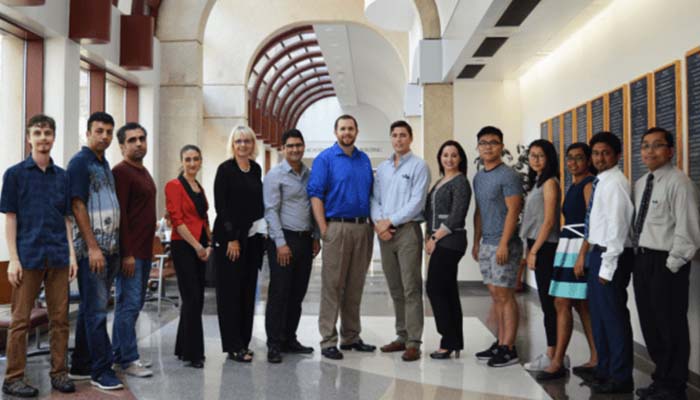
Azra Bihorac, MD, MS, PRISMAp Director and R. Glenn Davis Professor of Medicine, Surgery and Anesthesiology
Collaborator Colleges: Arts, Engineering, Medicine

Jiang Bian, PhD, Shared Resource Director and Associate Professor of Health Outcomes and Biomedical Informatics
Collaborator Colleges: Engineering, Journalism and Communications, Medicine, Pharmacy, Public Health and Health Professions

Ricardo Chebel, DVM, MVPM, Project PI and Associate Professor of Large Animal Clinical Sciences
Collaborator Colleges: Agricultural and Life Sciences, Engineering, Veterinary Medicine